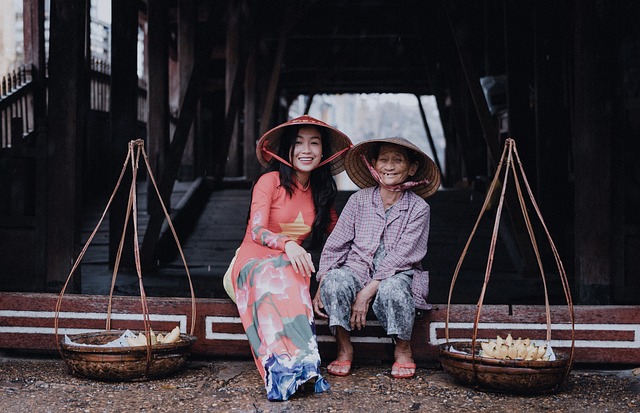
4 Natural Ways ....
There are ....


There are nine large populations in the world where living past 100 is not uncommon. What can we learn from them?
While the average life expectancy for a human is currently 72.98 years (as per 2022), there are nine large populations in the world where living past 100 is not uncommon, known as Blue Zones. They don’t do it with the help of medicine, biohacking or the newest technology. They do it through a combination on natural ways. What can we learn from them that will take us to 100 years or more, and in a good health?
1. Move – Physical Well-Being
While we all know about the importance of excercising for our health, to keep moving your body is not necessary about running marathons, spinning classes or aerobics. What we learn from the Blue Zones is the importance of moving naturally. Leave your car parked and walk or cycle more. You go to do a grocery shopping, walk. You go to pick up children from schools, walk (then kick the ball or play ‘who runs faster’ with them). You go to work, walk or cycle (using public transport will make you walk more too). When you have a choice of taking an elevator, escalator or walk the stairs, choose to walk the stairs. Check what of your interest will get you to move even more. Maybe it’s gardening, martial arts, swimming or playing football? You get the idea. It’s about moving naturally without thinking of it.
2. Right Outlook – Emotional Well-Being
When looking at the people from Blue Zones, the focus here is on two things: having a reason to live (purpose) and downshift (daily mindful time of relaxation or reflection).
One the biggest reasons for feeling depresses is not having a reason to live. It is hard to get out of bed when nothing seems exciting, inspiring, joyful and worth living. Those living the longest live with purpose. They have plans and goals with emotional importance attached to them. Some research say that having a life porpose adds seven years to your life. Find your why then. Why it is worth to live today and tomorrow, and 100 years? Could be a project, could be children, could be making a difference to this world, could be simply loving to experience all that life offers. The waking up process helps with finding a solid purpose that leads to a longer life.
We are constantly exposed to stressors and most of us are lacking the ability to perceive situations in the way that is stress free (can be learned by the way). Instead we get stressed. When we are in the state of stress for long periods of time or always, it leads to chronic inflammation which is associated with age-related diseases and shortens our life. The worlds’ longest lived populations deal with it through having their routines that relax them and eliminate the stress from their mind and body. People of Okinawa take a few minutes each day to remember their ancestors, some prya, Sardinians have a happy hour time, people of Ikaria take a nap. Find your downshift routine and take time to distress, daily. You will find some ideas and inspiration here: Stress Relief.
3. Eat Wisely – Physical Well-Being
Healthy body is connected with not only what we eat but with how we eat too. What is common for Blue Zones are two eating trends: 1) Eat less and 2) Fresh food packed with plants.
In Okinawa people stop eating when 80% full. Not being hungry is enough for putting end to their meal and most likely a prevention from gaining weight. Across all Blue Zones people tend to have the smallest portion of food at the end of the day. Their last meal is consumed late in the afternoon or early evening. They don’t eat anything after. Without calling it intermittent fasting they naturally give their body a rest from hard work of digesting.
There is no one specific diet to follow, even though it happens that two of the Blue Zones follow what is seen as the healthiest cusines, Japanese and Meditterinian.
What’s common for the centurians is that they eat meat on average 5 times a month. Their food is mainly plant based, but not only. You will find fish too. They consume fresh and local ingrediens and the cornerstone of most of the diets observed in the Blue Zones are: beans, soya, lentils. Interesting fact to add is that sweet potatoes made up 67% of the world’s longest living women’s (Okinawa) diet.
4. Connect – Social Well-Being
Separation leads to loneliness which is a quiet killer. Something that doesn’t really exist in the Blue Zones. People there cultivate family relationships and spending time with the elderly parents and grandparents, keeping them close and connected. They also invest in their children with time and love, not rushing to make them independent.
Having social circles of friends who take care of each other is part of the social contract. Okinawan’s for example create “moais”. These are groups of five friends who are commited to each other for life.
Taking an active role in the community is also common for centurians. They talk with their neighbours, are actively supporting community incentives and join the activites. Religious communities play a big role here too. All but 5 of the 263 interviewed habitants of the Blue Zones belong to some type of faith-based community. No matter the kind, find your tribe, connect with people, stay active together and serve each other. This on its own will add joy, happiness and purpose, which contributes to longevity.
You can read more about what’s behind Blue Zones habitants longevity in “The Blue Zones Secrets for Living Longer: Lessons From the Healthiest Places on Earth” book by Dan Buettner.
Discover how to use fears to escape the anxiety trap and create the life you want.
Free Webinar